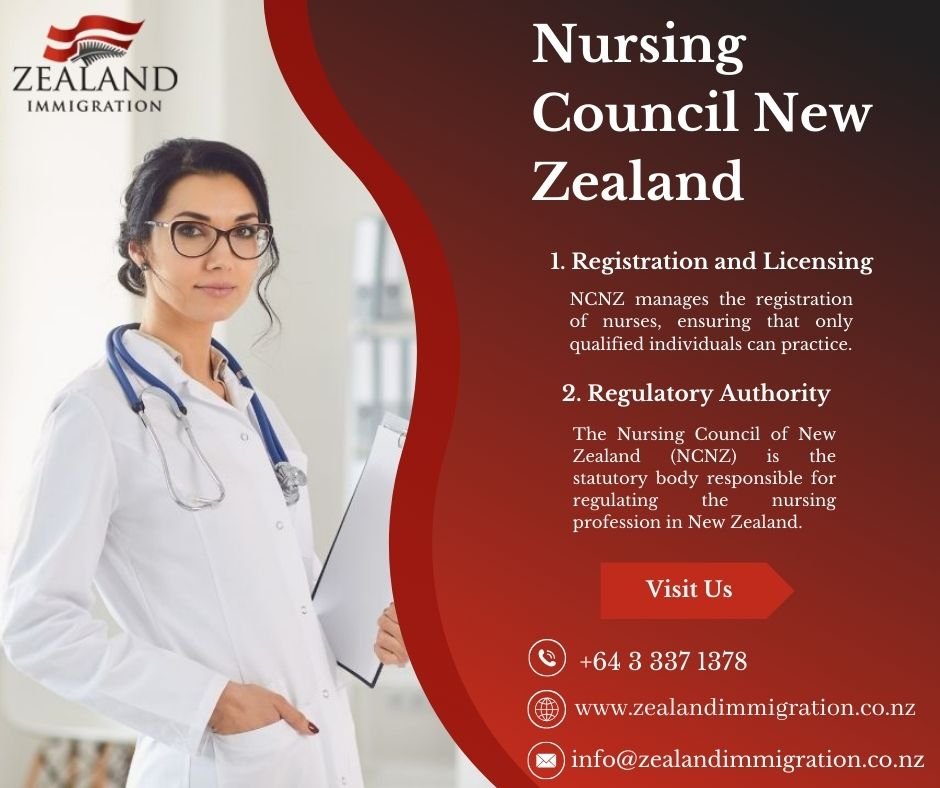
Becoming a nurse in New Zealand is a rewarding career choice that offers the opportunity to make a significant impact on individuals and communities. However, navigating the qualification process for a New Zealand Nursing qualification can seem daunting. In this article, we’ll provide top tips for achieving success in obtaining your New Zealand nursing qualification, informed by the standards set by the Nursing Council of New Zealand.
Understanding the Nursing Council of New Zealand
Role of the Nursing Council
The Nursing Council of New Zealand plays a crucial role in regulating nursing practice. It is responsible for:
- Setting Standards: The Council establishes the educational and professional standards required for nurses.
- Ensuring Public Safety: By maintaining a register of qualified nurses, the Council helps ensure the safety and quality of nursing care.
- Supporting Professional Development: The Council provides resources and guidance for continuous learning and improvement .
Importance of Compliance
Compliance with the Nursing Council’s standards is essential for:
- Successful Registration: Adhering to these requirements is necessary to become a registered nurse.
- Professional Credibility: Meeting the standards enhances your professional reputation and instills confidence in your clients and employers.
- Ongoing Education: Understanding and following the Council’s guidelines can aid in your long-term career development.
Know the Qualification Requirements
Educational Pathways
To qualify as a nurse in New Zealand, you must complete the following educational requirements:
- Bachelor of Nursing: This is typically a three-year program offered by various universities across New Zealand. Ensure the program is accredited by the Nursing Council.
- Alternative Qualifications: If you have a nursing qualification from overseas, check if it meets the New Zealand standards through the Council’s evaluation process .
English Language Proficiency
Demonstrating proficiency in the English language is crucial, particularly if it is not your first language. Requirements include:
- IELTS (International English Language Testing System): A minimum score of 7.0 in all bands is usually required.
- OET (Occupational English Test): Achieving a B pass in all sub-tests can also be acceptable.
Registration Process
The steps to gain registration as a nurse in New Zealand include:
- Complete Your Education: Ensure you graduate from an accredited nursing program.
- Apply for Registration: Submit your application to the Nursing Council along with required documentation.
- Pass the Nursing Registration Exam: Successfully complete the required examinations, such as the OSCE (Objective Structured Clinical Examination).
Preparing for the Nursing Registration Exam
Understanding the Exam Format
The nursing registration exam is designed to test your knowledge and clinical skills. Key components include:
- Theoretical Exam: This assesses your understanding of nursing principles, ethics, and practices.
- OSCE: This practical exam evaluates your clinical skills in a controlled environment.
Study Resources and Materials
Preparation is key to success. Here are some recommended resources:
- Textbooks: Use authoritative nursing textbooks that align with the NZ nursing curriculum.
- Online Courses: Consider enrolling in review courses that focus on the registration exam format.
- Study Groups: Join or form study groups with fellow nursing students to share insights and resources.
Practice Makes Perfect
Consistent practice can significantly enhance your exam readiness:
- Mock Exams: Take practice tests to familiarize yourself with the exam format and identify areas for improvement.
- Skill Simulations: Engage in simulation labs to practice clinical skills in a safe environment.
Bridging Programs for Overseas Nurses
Overview of Bridging Programs
Bridging programs are designed for overseas nurses who wish to practice in New Zealand. These programs typically cover:
- Cultural Competency: Understanding New Zealand’s healthcare system and cultural nuances.
- Clinical Skills Refresher: Practical training to meet New Zealand standards.
Choosing the Right Program
When selecting a bridging program, consider the following:
- Accreditation: Ensure the program is recognized by the Nursing Council.
- Program Length and Structure: Look for a program that fits your schedule and learning style.
- Support Services: Choose a program that offers mentoring and support throughout the process.
Networking and Support Systems
Joining Professional Organizations
Engaging with professional nursing organizations can provide valuable resources and support:
- Nursing New Zealand: A national organization that offers networking opportunities, resources, and advocacy for nurses.
- Local Nursing Associations: Consider joining regional groups that provide local support and events.
Finding Mentorship
Having a mentor can greatly enhance your professional journey. Benefits include:
- Guidance: A mentor can provide insight into navigating your nursing career.
- Networking Opportunities: Mentors can introduce you to valuable contacts in the industry.
Utilizing Online Communities
Online forums and social media groups can offer additional support:
- Facebook Groups: Join nursing-specific groups to connect with other aspiring nurses and share experiences.
- Reddit Communities: Participate in subreddits focused on nursing for advice and resources.
Staying Updated with Nursing Council Changes
Regularly Check the Nursing Council Website
Staying informed about changes to regulations is crucial. Tips include:
- Subscribe to Newsletters: Sign up for updates from the Nursing Council New Zealand to receive important announcements directly.
- Monitor Social Media: Follow the Nursing Council on platforms like LinkedIn and Twitter for real-time updates.
Attending Workshops and Seminars
Participating in educational events can enhance your knowledge and skills:
- Professional Development Workshops: Attend workshops hosted by the Nursing Council or other reputable organizations to stay current.
- Conferences: Participate in nursing conferences to learn from experts and network with peers.
Tips for Success in the Nursing Career
Building Soft Skills
In addition to clinical knowledge, soft skills are essential for nursing success:
- Communication: Develop effective communication skills to interact with patients and colleagues.
- Empathy: Cultivate empathy to understand and support patients’ needs.
- Teamwork: Learn to work collaboratively in a healthcare team to provide the best care.
Time Management and Self-Care
Managing your time effectively and prioritizing self-care is vital in nursing:
- Organizational Skills: Utilize planners or digital tools to manage your schedule efficiently.
- Self-Care Practices: Engage in activities that promote your mental and physical well-being, such as exercise, meditation, or hobbies.
Conclusion
Navigating the path to becoming a registered nurse in New Zealand can be challenging, but with the right preparation and understanding of the Nursing Council’s requirements, success is achievable.




